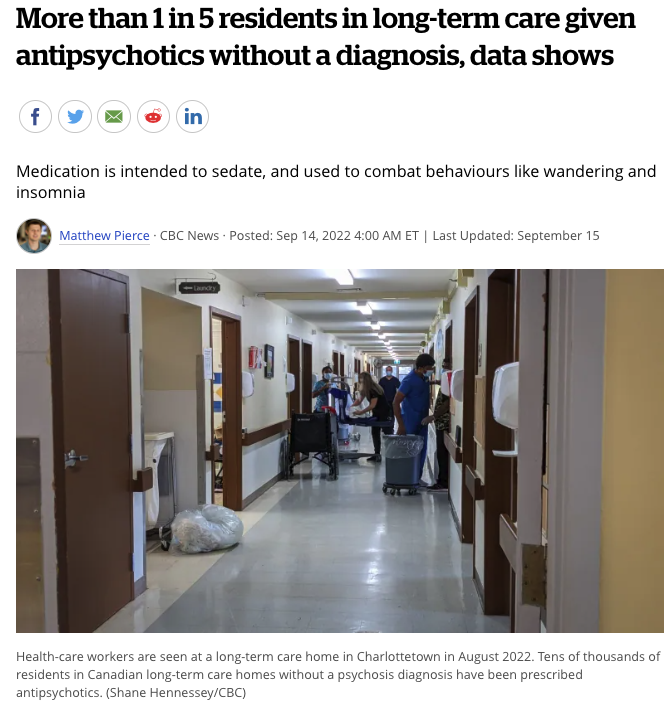To mark World News Day on September 28, 2022, the World News Day campaign is sharing stories that have had a significant social impact. This particular story, which was shared by CBC News (Canada), was first published on August 25, 2022.
—
Tens of thousands of residents in Canadian long-term care homes without a psychosis diagnosis have been prescribed antipsychotics — a number that has been increasing since the pandemic began. This story reveals the “potentially inappropriate” antipsychotic use on residents who have significant difficulties or are completely unable to advocate for themselves.
—
When Laura Pinto moved her father to a Windsor, Ont., nursing home in 2017, she says he deteriorated from someone who had dementia and memory issues into a “zombie.”
The change was the result of a cocktail of drugs, according to Pinto, that included Haldol and Seroquel — antipsychotic medications traditionally prescribed to control symptoms like hallucinations or delusions, and the behaviours that result from them.
Her father received the medication off-label — for issues not specifically recommended by Health Canada — for more than six months. He is described as engaging in “prevalent exit-seeking behaviour” — wandering around trying to find a way out of the home — in a medical report supplied to CBC News by Pinto. However, he’d never been diagnosed with psychosis, meaning a doctor had never determined he had schizophrenia or any of the psychiatric conditions that highly sedative antipsychotics are meant to treat.
Robert Pinto was just one of tens of thousands of residents in Canadian long-term care homes without a psychosis diagnosis that have been prescribed antipsychotics — a number that has been increasing since the pandemic began, according to data from Canadian Institute for Health Information (CIHI)…
To read the full story on the CBC News website, please click here.





